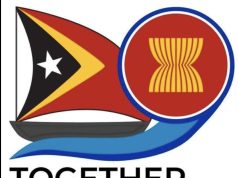Nearly three decades ago, Malaysian police stormed a hall in Kuala Lumpur, arresting activists and shutting down the Asia-Pacific Conference on East Timor (APCET II). The decision, defended at the time by then–Deputy Prime Minister Anwar Ibrahim, was seen as bowing to pressure from Indonesia and ASEAN’s principle of non-interference. East Timorese voices were silenced, and their struggle for self-determination was kept in the shadows of regional diplomacy.
This week, Anwar returned to the Timorese stage not as the man who silenced activists, but as Malaysia’s Prime Minister, warmly welcomed in Dili and pledging support for Timor-Leste’s long-awaited accession to ASEAN.
“Timor-Leste is part of this region, has built consensus, and shares ASEAN’s determination,” Anwar said after meeting President José Ramos-Horta at the Presidential Palace. “Its accession will benefit us all. We will prioritize trade, investment, tourism, education, and defense.” He added that Petronas and Malaysian private companies would take part in strengthening cooperation, and announced ASEAN will celebrate Timor-Leste’s membership in October 2025.
For Ramos-Horta, the visit was laden with gratitude. “Malaysia stood with us during our most critical moments,” he said. “This steadfast support will never be forgotten by the people of Timor-Leste.” The President awarded Anwar the Grande Collar da Ordem de Timor-Leste, the nation’s highest honor.
The symbolism is unmistakable. In 1996, ASEAN governments sought silence on Timor-Leste’s occupation, but civil society broke through with cross-border solidarity networks. By 1999, after a UN-supervised referendum and a violent transition, Malaysia shifted its stance, sending peacekeepers, police, and medical teams to help stabilize the country. In 2007, when crisis struck again, Kuala Lumpur quickly dispatched forces under the ISF and UNPOL.
Joaquim Rusuo da Fonseca, a Timorese activist who escaped the Malaysian police raid during APCET II, welcomed the transformation in Malaysia’s stance: “This can be considered a step marking a clear shift from its initial position, which had been tolerant of Indonesia’s military occupation, to a new stance that recognized the Timorese people’s right to self-determination and, ultimately, Timor-Leste’s status as an independent state.”
Timor-Leste formally became independent in 2002 and applied for ASEAN membership in 2011. Its journey has been slow, hindered by doubts over its institutions and fragile economy. Yet the young nation has persisted, consolidating democracy and deepening partnerships. Now, with ASEAN laying out a roadmap, full membership in 2025 appears within reach.
Anwar’s visit highlights both the irony and the transformation of regional politics: what was once a suppressed cause has become a celebrated achievement. For Timor-Leste, ASEAN promises recognition and security but also the challenge of keeping its independent voice alive within ASEAN’s culture of cautious diplomacy. For Malaysia, the visit is a chance to rewrite history not by erasing the past, but by embracing a neighbor once left in the shadows.











